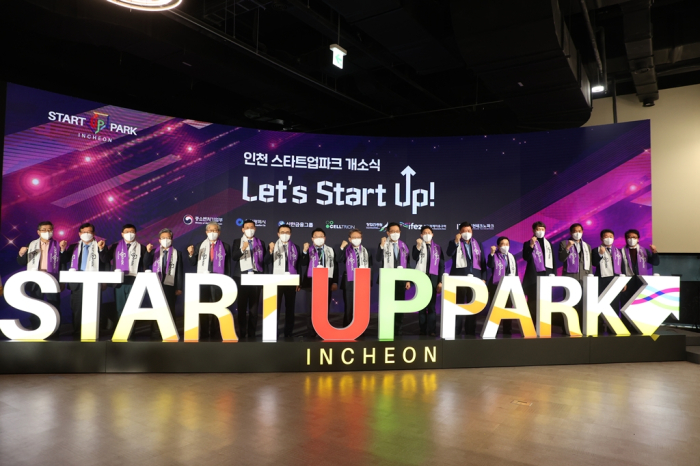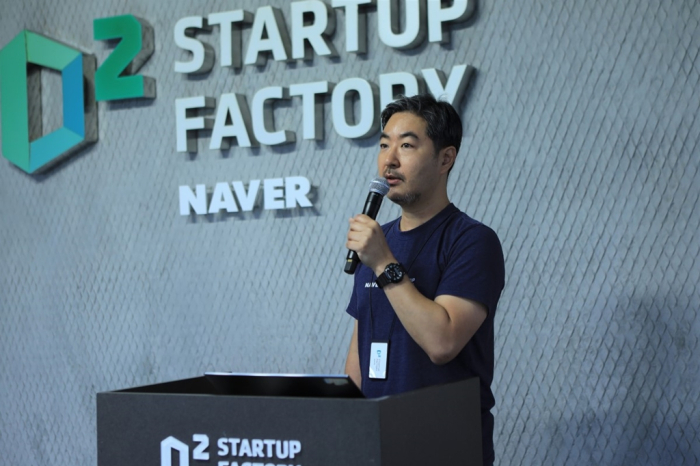Venture capital
Korea VC firms reap big rewards for investing in early-stage startups
PE funds interested in buyout opportunities in established firms also look for early-stage startups for investment
By Sep 05, 2021 (Gmt+09:00)
4
Min read
Most Read
LG Chem to sell water filter business to Glenwood PE for $692 million


Kyobo Life poised to buy Japan’s SBI Group-owned savings bank


KT&G eyes overseas M&A after rejecting activist fund's offer


StockX in merger talks with Naver’s online reseller Kream


Mirae Asset to be named Korea Post’s core real estate fund operator



When KNet Investment Partners LLC, a South Korean venture capital company, invested 9.9 billion won ($8.6 million) in Krafton Inc. in 2009, the game developer was teetering on the brink of collapse.
Hardly making any money, Krafton was struggling with quickly depleting capital.
Twelve years later, however, the developer of PlayerUnknown’s Battlegrounds (PUBG) went public on Korea’s main bourse, and KNet’s investment value has ballooned to more than 1 trillion won from a mere 9.9 billion won.
Other Krafton investors such as IMM Investment, Altos Ventures, Aju IB Investment Co. and Daesung Private Equity have also reported an average of 1,000% rise in their return on investment with the initial public offering of the game developer.
Some venture capitalists, which participated in Krafton’s seed funding rounds just like KNet, saw their returns soar over 10,000%.
“Some people in the venture capital industry jokingly say that a tenfold return is not even worth mentioning. If you pick up the right startup and invest in it, you really hit the jackpot,” said a venture capitalist.

VENTURE CAPITAL FIRMS MUSHROOM
According to Korean Venture Capital Association, the size of venture capital investment rose to the all-time high level of 4.3 trillion won last year. In the first half of this year, the amount stood at 3.7 trillion won, heading for another record high for this year.
The number of venture funds in Korea rose to 1,077, rising above the 1,000 mark for the first time, in 2020.
Korea’s top online flea market operator Danggeun Market Inc.’s enterprise value was estimated at 3 trillion won when it received 179 billion won in Series D funding round last month.
Its valuation compared with an estimated corporate value of just 300 billion in 2019 when it secured 40 billion won in funds, and a mere 40 billion won in value in 2018 when it received 5.7 billion won in funding.
With the 70-fold increase in its valuation in just three years, venture capital firms that participated in Danggeun at an early stage are set to gain hefty gains when they exit from their investment.
The corporate value of Woowa Brothers Corp., the owner of Korea’s No. 1 food delivery app Baedal Minjok, commonly known as Baemin, was set at 4.75 trillion won when it was sold to Germany’s Delivery Hero SE in late 2019.
While Bon Angels, which invested in 300 million won in Woowa in 2011, sold its stake at 300 billion won later, Altos Ventures reaped 900 billion won when it exited from its investment in the delivery app operator in 2012-2014 of 7 billion won.
Dunamu & Partners, which operates Korea’s top cryptocurrency exchange Upbit, was valued at 6 trillion won in April when it received 40 billion won from DSC Investment.
Currently, Dunamu’s valuation is said to be hovering around 10 trillion won, offering early-stage VC investors an incredible opportunity to reap rewards.

PRIVATE EQUITY FIRMS JOIN
As venture capitalists are making big money from their investment in startups at an early stage, private equity companies, which more often than not showed interest in buyout opportunities or carried out massive investments after startups proved their viability, have also started to invest in budding companies from the first round of financing, betting on their growth prospects.
Global PE firm TPG has gained decent gains from its investment in Kakao Mobility Corp. and KakaoBank Corp.
Kakao Mobility, Korea’s popular taxi-hailing app operator, recently initiated an IPO process with a plan to go public next year. When debuted on the Kospi, the value of the six-year-old mobility platform is forecast to rise to over 6 trillion won.
SkyLake Investment, a local PE company, is also set to gain from its investment in Yanolja, Korea’s largest travel platform, which is preparing to go public on the Nasdaq as early as 2023.
Venture capital firms’ successful investments have also boosted their own value.
The share prices of Mirae Asset Venture Investment Co. and Atinum Investment Co. have risen about 70% so far this year, while Aju IB Investment’s share price has risen 40%, compared with the benchmark Kosdaq index’s 7% rise in the same period.

STARTUPs GAIN UPPER HAND
As a growing number of promising startups have posted whopping gains in their valuations upon listing on the bourses amid ample liquidity in the stock market, venture capital firms are wooing startups to get an opportunity to invest in them.
“Investors are lined up with big money in their pockets. We had to invite only those VCs with good track records to our investment briefing session, turning many of them away,” said the chief executive of an e-commerce startup, which recently conducted a Series A funding round.
“Some of the venture capital firms even offered to provide us with management support plans to be named as investors in our company.”
Industry watchers raise concerns that some startups could be overvalued.
According to the Ministry of SMEs and Startups, 15 Korean companies were recognized as unicorns or those unlisted firms with their valuation reaching $1 billion as of July.
Other than L&P Cosmetics and bio company Aprogen Inc., most of the unicorn companies are from the e-commerce or online business sectors, often regarded as volatile and risky business models.
Write to Jong-Woo Kim and Jun-Ho Cha at jongwoo@hankyung.com
In-Soo Nam edited this article.
More to Read
-
 StartupsKorea's top online flea market startup value up to $2.6 bn
StartupsKorea's top online flea market startup value up to $2.6 bnAug 18, 2021 (Gmt+09:00)
2 Min read -
 StartupsKorean startups raise record-high Series A funding in H1
StartupsKorean startups raise record-high Series A funding in H1Aug 02, 2021 (Gmt+09:00)
4 Min read -
 StartupsS.Korean startups' combined valuation tops $150 billion
StartupsS.Korean startups' combined valuation tops $150 billionMar 10, 2021 (Gmt+09:00)
1 Min read
Comment 0
LOG IN


